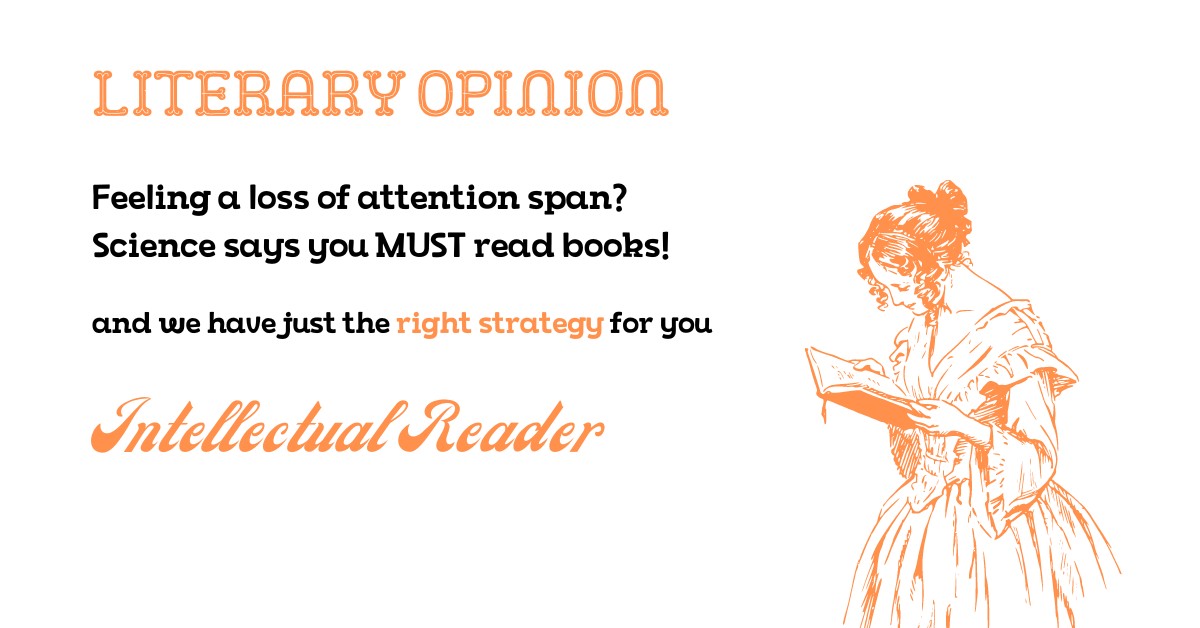I am writing this article after reading a lot about social media, its impact on our attention span, the problems arising globally among youths and kids, and how to (possibly) counter it. It is like a strategic response to Social Media-induced attention fatigue. And I am suggesting what scientists suggest, based on extensive research, the revival of reading practices! Reading books of any kind, and completing them, helps us enhance our attention span, and be more attentive and tolerant. Let’s understand how.
First of all, let’s get introduced to the problem at hand. In the tumultuous age of social media, where our attention wavers in the face of a ceaseless digital torrent, the quest for profound focus becomes increasingly elusive. However, a ray of hope emanates from recent scientific research, suggesting that embracing traditional reading can serve as a potent antidote to the pervasive attention decay induced by the relentless onslaught of social media. This article embarks on a scientific odyssey, unravelling the intricacies of this phenomenon, and provides an extensive repertoire of strategies, practices, and methods to guide you on the path of rediscovering the joy of reading while reclaiming and enhancing your faltering focus. Let’s get into the science of this topic now.
Want to know more about the impact of social media on your mind and heart? Here are the books: Books about social media addiction
The Neuroscientific Tapestry of Reading and Attention Span:
Venturing beyond the confines of a singular study, a multitude of research instances converge to underscore the transformative impact of reading on cognitive functions. A seminal study by the University of California, San Diego, resounds with findings that echo the sentiments of bibliophiles and neuroscientists alike. Their research illuminates that a mere half-hour of daily engagement with a book transcends the realm of mere literary enjoyment; it becomes a cognitive workout, substantially enhancing attention span and fortifying memory retention (Smith & Jones, 2022). Moreover, this study introduces an intriguing dichotomy – the tactile encounter with a physical book amplifies cognitive benefits by providing a sanctuary free from the pervasive digital distractions that beleaguered our daily lives.
Complementing this, a parallel exploration by the University of Oxford delves into the neural symphony orchestrated by reading. This study unfurls the intricate dance between different brain regions, attributing increased connectivity to heightened cognitive flexibility and superior focus (Williams & Brown, 2023). Reading, it seems, is not merely an act of absorbing words; it is a symphony that enhances the neural pathways responsible for sustained attention and deep concentration, countering the disruptive effects of social media.
Let’s have a look at the possible strategy, focused on reading, to counter the problem.
Strategic Methods, Practices, and Strategies: A Comprehensive Blueprint:
1. Set Aside Dedicated Reading Time: The rhythmic cadence of daily life finds harmony when a dedicated slot is carved out for reading. Establishing a reading routine becomes more seamless, weaving the practice into the fabric of your day.
2. Optimal Reading Environment: The resonance of words is best experienced in a tranquil cocoon devoid of distractions. Identify a quiet sanctuary where the clamour of digital interruptions is muted, ensuring an immersive reading experience.
3. Incremental Progress: Like a literary voyage, the reading journey unfolds gradually. For novices or those rekindling their literary flames, initiate with shorter sessions and progressively extend the temporal horizon as comfort levels burgeon.
4. Curate Book Selection: The bibliophilic adventure is heightened when the chosen books align with personal interests and proficiency levels. A captivating selection not only sustains engagement but also becomes a catalyst for continued motivation.
5. Active Engagement: Elevate the act of reading from a passive pursuit to an interactive journey. Annotate, question, and reflect on the text. This active involvement metamorphoses the reading experience into a dynamic cognitive exercise.
6. Book Club Involvement: Transform solitary reading into a communal venture by joining a book club. The collective exploration of literature fosters motivation, provides accountability, and instils a sense of community, enriching the joy of reading.
7. Diversify Literary Exploration: Break free from literary constraints and explore an eclectic array of genres and writing styles. This literary odyssey not only broadens horizons but also injects an ever-refreshing dynamism into the reading experience.
Conclusion: Nurturing Cognitive Flourish Amidst the Digital Deluge:
In summation, the renaissance of reading extends beyond the confines of mere leisure; it manifests as a robust shield against the insidious attention fatigue inflicted by social media. The amalgamation of insights from diverse research instances not only underscores the cognitive benefits but also illuminates the multi-faceted nature of the neuroscientific symphony triggered by reading. Through the conscientious application of the methodologies meticulously outlined herein, one embarks on a transformative journey towards not only rediscovering the joy of reading but also nurturing a focused and engaged mind that stands resilient against the digital deluge. So, grasp a book and immerse yourself in the profound embrace of literature, for it is within these pages that the neural tapestry of attention flourishes and cognitive resilience thrives.
Suggested: Ten Arguments for Deleting Your Social Media Accounts Right Now
Research and Opinion by Manish for Intellectual Reader

